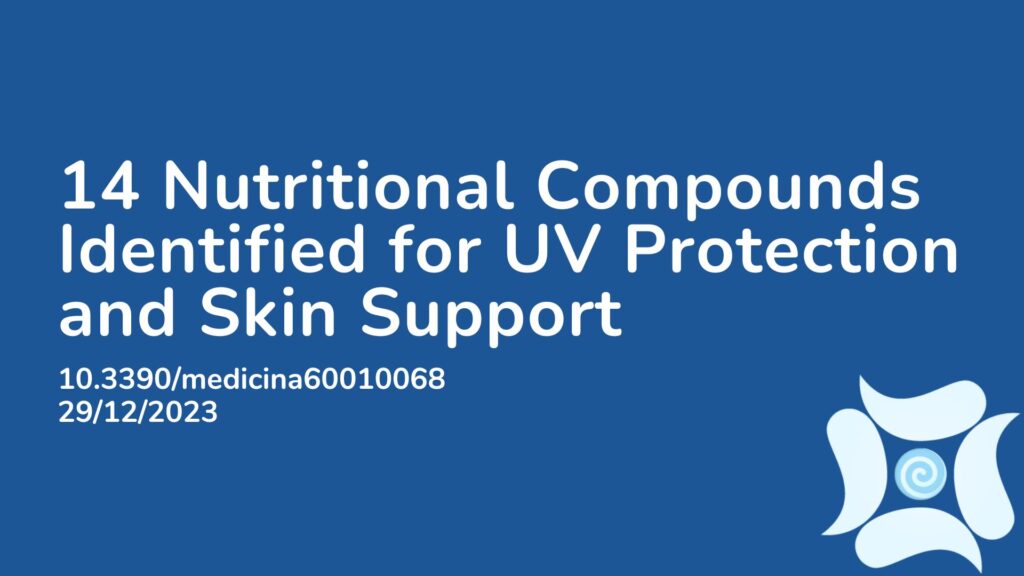Summary:
Enhancing the skin’s barrier through supplementation is widely recognized as beneficial. This paper conducts a comprehensive analysis of 14 nutritional compounds commonly used, assessing their impact on skin health. Each compound, such as vitamin A, vitamin C, vitamin D, vitamin E, curcumin, chlorella, Omega-3, biotin, Polypodium leucotomos, Simmondsia chinesis, gamma oryzanol, olive leaf extract, spirulina, and astaxanthin, demonstrates potential effects with promising benefits for skin health, particularly in protection against UV radiation. Incorporating these compounds into one’s diet or daily regimen may positively impact various skin inflammatory conditions like atopic dermatitis or psoriasis, and offer UV radiation protection. There was also evidence to suggest they may potentially offer benefit during chemotherapy or in preventing melanoma development. However, further research is necessary to establish optimal dosage levels for desired skin effects.
Abstract:
Supplementation of micronutrients is considered to be crucial in the reinforcement of the skin’s barrier. In this paper, 14 nutritional compounds commonly used in food or pharmaceutic industries were analyzed in terms of influencing skin conditions. The major objective of this paper was to provide a narrative review of the available literature regarding several chosen compounds that are currently widely recommended as supplements that aim to maintain proper and healthy skin conditions. We conducted a review of the literature from PubMed, Scopus, and Web of Science until September 2023 without any other restrictions regarding the year of the publication. Ultimately, we reviewed 238 articles, including them in this review. Each of the reviewed compounds, including vitamin A, vitamin C, vitamin D, vitamin E, curcumin, chlorella, Omega-3, biotin,Ppolypodium leucotomos, Simmondsia chinesis, gamma oryzanol, olive leaf extract, spirulina, and astaxanthin, was observed to present some possible effects with promising benefits for a skin condition, i.e., photoprotective radiation. Adding them to the diet or daily routine might have a positive influence on some skin inflammatory diseases such as atopic dermatitis or psoriasis. Further, UV radiation protection facilitated by some supplements and their impact on human cells might be helpful during chemotherapy or in preventing melanoma development. Further research is needed because of the lack of clear consensus regarding the doses of the described compounds that could provide desirable effects on the skin.
Article Publication Date: 29/12/2023
DOI: 10.3390/medicina60010068



